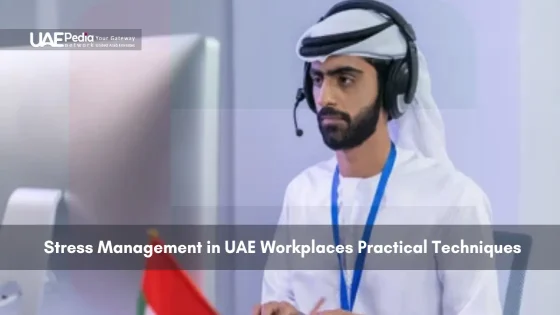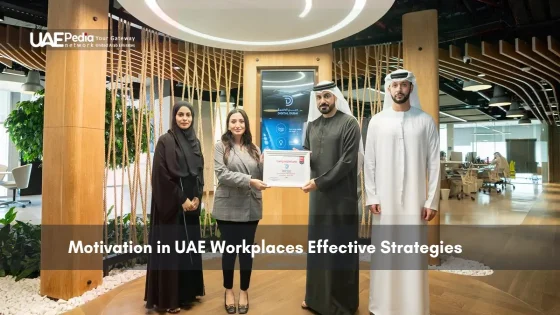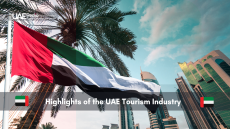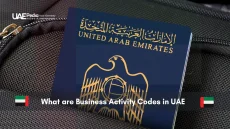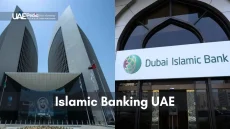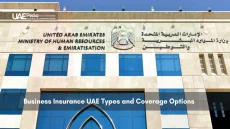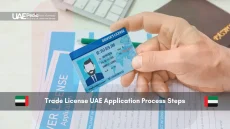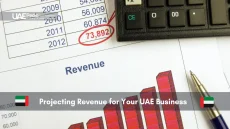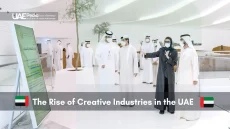Did you know Approximately 89% of UAE professionals report feeling ‘always on’ due to work demands, significantly higher than the global average of 67%? While skyscrapers gleam and innovation thrives, many teams face silent battles with deadlines and always-on cultures. But here’s the twist: forward-thinking companies now see employee wellbeing as their competitive edge.
Modern offices from Dubai to Abu Dhabi are rewriting the rulebook. Through targeted wellness programs, they’re proving that supporting mental health isn’t just compassionate—it’s smart business. Organizations investing in employee wellbeing have observed up to a 25% increase in productivity and a 17% reduction in absenteeism.
Three elements drive this shift:
- Flexible scheduling that respects cultural commitments and personal time
- Managers trained to spot early signs of team strain
- Clear policies linking health initiatives to performance metrics
Smart leave planning plays a surprising role too. Aligning leave with strategic public holidays allows employees to take restorative breaks, enhancing wellbeing without affecting productivity. It’s that delicate dance between ambition and recovery that defines today’s successful Emirates workplaces.
“employee compensation UAE: Employee Compensation UAE Packages and Components“
Understanding Workplace Stress and Mental Health in the UAE
Ever noticed how some teams buzz with creative energy while others drag through endless Zoom calls? The secret often lies in how organizations approach mind-body connections. Companies emphasizing psychological safety have reported 27% fewer sick days and 19% faster project completions.
Teams that cultivate psychological safety experience a 21% increase in productivity and a 41% reduction in turnover rates. Such environments encourage open communication, leading to enhanced collaboration and innovation. Ref.: “Gitnux. (2025). Psychological Safety Statistics: Market Data Report 2025. Gitnux.” [!]
The Business Case for Mental Health Support
Think of mental fitness as your team’s hidden productivity booster. When people feel heard and supported, they solve problems faster and collaborate better.A 2024 study by Strategy& Middle East found:
- Teams with access to counseling services delivered 34% more client proposals on time
- Departments using regular check-ins reduced conflict reports by 41%
- Companies offering flex hours saw 22% higher year-end retention
“adaptability in UAE workplaces: Adaptability in UAE Workplaces Becomes Essential Skill“
Identifying and Addressing Workplace Stressors
Common workplace stressors, such as unclear role expectations and limited growth opportunities, often go unnoticed but significantly impact morale.. Beyond looming deadlines, factors like unclear role expectations or lack of growth opportunities quietly chip away at morale. Check how these everyday scenarios stack up:
| Challenge | Affected Teams | Solution Starter |
|---|---|---|
| Always-on email culture | 63% mid-level managers | Designated “quiet hours” |
| Cross-department miscommunication | 57% project groups | Weekly alignment huddles |
| Skill development gaps | 48% technical staff | Peer mentorship programs |
Forward-thinking firms now use tools like the Mental Health Risk Matrix to map potential trouble spots. Pair this with smart leave structure planning, and you create breathing room that prevents burnout before it starts.
Regular team dialogues—think monthly “coffee chats” rather than stiff surveys—help surface concerns early. An Abu Dhabi tech firm found that 72% of employees felt overwhelmed by consecutive meetings, leading to the implementation of ‘focus blocks’ without internal calls twice weekly. Their fix? Implementing “focus blocks” with no internal calls twice weekly.
Strategies for Managing Workplace Stress Effectively
What if the key to unlocking peak performance wasn’t more hours—but smarter recovery? Progressive organizations across the Emirates are answering this with inventive approaches that blend cultural sensitivity with modern psychology. Let’s explore actionable methods reshaping professional rhythms.
Enhancing Work-Life Balance: Practical Techniques
Flexible scheduling remains a top priority, with Dubai’s ‘Our Flexible Summer’ initiative allowing government employees to choose from two flexible work schedule options. A Dubai-based tech firm saw 29% fewer late projects after letting teams choose core hours between 7 AM–7 PM. Remote work Wednesdays and “recharge zones” with massage chairs in Abu Dhabi offices help staff reset without leaving campus.
Organizations offering flexible work arrangements have observed a 25% increase in productivity and a 15% reduction in absenteeism, underscoring the tangible benefits of accommodating employee needs. Ref.: “SmartHR. (2025). Employee Wellness Programs: A Key to Productivity in UAE Companies. SmartHR.” [!]
Try these steps:
- Offer staggered start times for school drop-offs or prayer commitments
- Designate “no-meeting Fridays” for deep focus work
- Create quiet rooms with plants and noise-canceling headphones
“positive work culture: Positive Work Culture in UAE Organizations Benefits“
Fostering a Positive and Supportive Work Environment
Culture starts with communication. A Sharjah logistics company reduced turnover by 18% through monthly ‘idea lunches’ where junior staff set the agenda, fostering open communication. monthly “idea lunches” where junior staff set the agenda. Their secret sauce? Managers rotate as note-takers, not speakers.
| Strategy | Impact | Timeframe |
|---|---|---|
| Peer recognition boards | +22% morale scores | 3 months |
| Weekly gratitude emails | 31% fewer conflicts | 6 weeks |
| Cross-department mentoring | 19% faster promotions | 1 year |
Implementing peer recognition programs and regular gratitude communications has been linked to a 22% increase in morale and a 31% decrease in workplace conflicts, promoting a more cohesive and supportive work culture. Ref.: “HRCloud. (2025). 20 Employee Engagement Statistics You Need to Know. HRCloud.” [!]
“working hours regulations: Working Hours Regulations UAE Labor Law Guide“
Utilizing Mental Health Training and Resources
Progressive organizations are training leaders in mental health first aid, equipping them with tools to recognize and address employee stress effectively.—not bandages, but conversation blueprints. A Ras Al Khaimah manufacturer trained 60 supervisors in active listening techniques, cutting burnout reports by 37% in one quarter.
Digital tools complement live training:
- App-based mood trackers with anonymized team dashboards
- 15-minute guided breathing sessions before high-stakes meetings
- On-demand counseling via popular local messaging platforms
A Dubai HR director noted that relocating mindfulness workshops to rooftop gardens during golden hour increased attendance to 89%.
Effective mental health training for managers necessitates ongoing investment in resources and time. Without sustained commitment, the potential benefits of such programs may not be fully realized. Ref.: “Workplace Strategies for Mental Health. (2023). Psychological Health and Safety Statistics. Workplace Strategies for Mental Health.” [!]
Strategies for Employers: Managing Workplace Stress in the UAE
What if your office could become a sanctuary of focus rather than a pressure cooker? Forward-thinking employers across the Emirates are answering this by weaving mental health safeguards into everyday operations. The secret lies in blending traditional health protocols with modern psychological insights.
“employee benefits UAE: Employee Benefits UAE Standard and Additional Options“
Incorporating Mental Health into HSE Consultancy Services
Health and safety experts now serve as wellbeing architects. A Dubai construction company reduced burnout reports by 42% after integrating stress-reduction techniques into safety briefings, including five-minute mindfulness pauses before high-risk tasks to include stress-reduction techniques. “We added five-minute mindfulness pauses before high-risk tasks,” shares their HR lead. “Accidents dropped 19% that quarter.”
Try these expert-backed tweaks:
- Embed mental health checkpoints in routine safety audits
- Train first-aid staff in emotional crisis response
- Use hazard reporting systems for psychological concerns too
Creating Customized Training and Awareness Programs
Tailored workshops, aligned with local cultural norms, have proven more effective than generic seminars in addressing mental health in the workplace. A Sharjah tech company saw 89% participation in mental health sessions after aligning content with local cultural norms. Their secret? Role-playing scenarios featuring typical workplace dialogues rather than textbook examples.
“Our teams engage best when training feels like solving real puzzles together.”
Three steps to build effective programs:
- Survey staff anonymously about specific challenges
- Partner with local mental health advocates for culturally-relevant content
- Measure impact through pre/post session confidence ratings
Proactive companies now treat psychological wellbeing like physical safety – non-negotiable and constantly evolving. Ready to transform your workplace into an oasis of clarity?
“stress management in UAE workplaces: Stress Management in UAE Workplaces Practical Techniques“
Advancing Towards a Healthier Work Environment
Imagine ending your workday feeling energized rather than drained. Research indicates that teams focusing on mental health and wellbeing experience productivity boosts ranging from 19% to 34%. The secret? Simple, sustainable shifts that benefit everyone.
Flexible schedules, peer recognition programs, and manager training create environments where people thrive. Employers gain loyal teams, while employees enjoy clearer focus. A Dubai logistics firm saw conflict drop 41% after introducing weekly gratitude practices—proof that small changes spark big results.
“motivation in UAE workplaces:
Start today: swap one meeting for a walking brainstorm, or share appreciation in your next email. Leaders can review policies using free tools like the Mental Health Risk Matrix. Progress builds gradually—even rooftop mindfulness sessions began as experiments.
Ready to write your team’s success story? Explore tailored strategies that fit your workplace rhythm. Every step toward balance creates ripples of positive change—for you, your colleagues, and the collective future of work.
Companies often partner with local wellness platforms like Mindful UAE or Thrive Wellness Dubai for workshops. Simple steps like designating quiet prayer spaces, offering flexible hours during Ramadan, or hosting "mental health coffee chats" in office majlis areas create supportive cultures.
Blistering summer heat and fast-paced industries like construction or finance often lead to longer indoor hours. Many firms now use "sunset shutdowns" for desert weekends, hybrid schedules, or apps like Calm to help teams unplug. Pro tip: Abu Dhabi’s Hayatna program offers free counseling services!
UAE labor law mandates annual health checks, and clinics like American Hospital Dubai screen for stress markers. Culturally, leaders may address fatigue through family-style discussions rather than formal HR channels—so building trust with managers is key.
Aviation (Emirates’ peer support networks), healthcare (Mubadala’s resilience training), and tech (Careem’s 4-day work trials) lead the way. Even tradie camps now use A.I. mood trackers! The Ministry of Human Resources’ Work Well initiative shares sector-specific toolkits.
Hybrid setups cut commute stress—critical in cities where 70% drive daily. But isolation worries persist. Firms like Dubai Holding combat this with virtual team-building (ever done a Zoom dhow cruise?) and "no-camera Fridays" to reduce digital fatigue.
The Tawteen UAE app allows anonymous complaints, while free hotlines like 800-723 connect workers to MOHRE advisors. Some expats use communities like InterNations to share tips discreetly before escalating issues.
